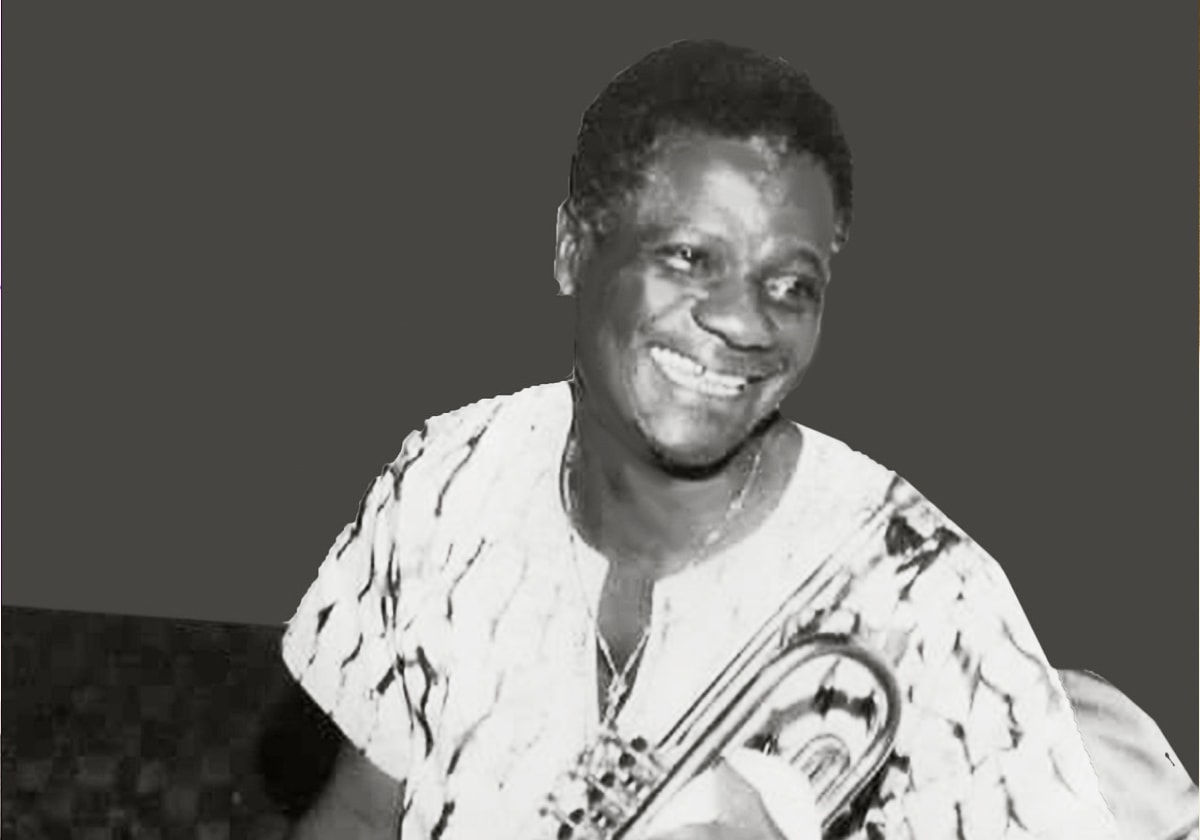It’s been called the end of the golden age of highlife.
Announced on February 12th 2020, Victor Abimbola Olaiya (OON) was confirmed to have passed on. He breathed his last breath within the walls of the Lagos University Teaching Hospital. Unsurprisingly, the demise of the musical icon has sent the nation into mourning, despite his advanced age of 89. Muhammadu Buhari, the President of Nigeria, spoke of Dr. Olaiya: “His place in history is guaranteed. He sang, not just for the entertainment value, but also taught critical lessons on life, good neighbourliness, and national cohesion. He will be sorely missed.”
To understand Victor Olaiya’s immense contribution to the highlife genre, one must go back to 1954, when he formed the Cool Cats band with Fela Ransome-Kuti and Tony Allen as on and off members. Before then Olaiya had been playing with some other bands, notably Bobby Benson’s Jam Session Orchestra.
The Cool Cats, which drew upon the pristine highlife sounds Victor Olaiya had picked up on the road, achieved massive success. Queen Elizabeth, who visited Nigeria in 1956 was serenaded by the glorious horns and drums of the highlife band. Their success never ceased: on the national front, the band played at the state balls held in the honor of Nigeria’s independence in 1960 and three years later, when Nigeria became a republic.
This recognition from the higher political echelon of the day is, of course, a nod to highlife’s placement as a genre that spoke to the possibilities of young Nigeria. Lyrics were often didactic and full of the wisdom of African elders. Its sound was electrifying, grand, and danceable. The 50s, 60s, and years after saw highlife acts dominate the African music scene. Artistes like ET Mensah, Prince Nico Mbarga, Rex Lawson, and Victor Olaiya himself were all extremely popular in Africa.
Among his contemporaries, Victor Olaiya was noted as a dedicated artist. He picked up instruments with the curiosity of a child using the patience and skill of the ideal student, learned its intricacies to mastery. This dedication goes way back to his young years. Following the trope of the incessant creative, Victor Olaiya, rather than train as a Civil Engineer in Howard University opted for music. Of course, it didn’t sit well with his elite parents (Alfred Omolona Olaiya and Bathsheba Owolabi Motajo) who would have wanted young Victor to join the corporate world which offered a better chance at the good life. But Olaiya kept on. He learned to play the Bombardon and the French Horn in his early life and with this continued dedication, learned to shape his highlife sound that is joyous and physically demanding.
While disclosing how he got the nickname, ‘evil genius,’ Victor Olaiya in an interview with The Guardian said that “highlife music is 10 percent inspiration and 90 percent perspiration. I am called an evil genius because I make my fans sweat through dancing while enjoying my music. To make a difference in the music, you need to sweat.” He’s harnessed this value in making his timeless highlife music.
One such song, “Baby Jowo,” was quite the affair. A classic love tale, it had listeners in awe decades after its release. In 2013 Victor Olaiya had 2Baba, a contemporary afro-pop master, on the song. As expected, the song was a toast for the younger generation and a raised fist for Olaiya, saying “yes, I’m still here”. In 2017, Victor Olaiya, who kept playing weekly at his hotel (Stadium Hotel) in Surulere, Lagos, announced his retirement. Even then, his manager Gbenga Adewusi said the only reason he wasn’t 100% with the music was due to failing health.
Members of the Copyright Society of Nigeria (COSON) were left mourning. Reacting to the news of the passage of the great highlife superstar, singer and trumpeter, COSON Chairman, Chief Tony Okoroji, said, “this passing of Olaiya is like the fall of a big Iroko and the end of an era. Olaiya was in every way one of Nigeria’s greatest musicians of all times who held on to his art decade after decade after decade.
“His influence on Nigerian music and musicians is immeasurable. His impact on entertainment in the country is unequaled. Yes, there will be other musicians over time, but there will not be another Victor Olaiya. Fare thee well great maestro.”
As Dr. Victor Olaiya departs, he leaves behind his many wives, his children, and grandchildren.




